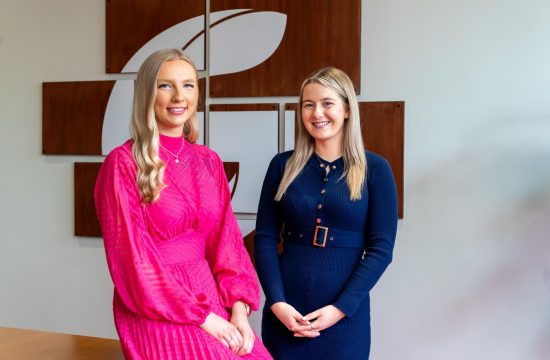The vast majority of us will have felt some level of stress in the workplace at some point in our working lives.
Deadline pressures, sales targets, reports to complete, and the many other day-to-day issues people deal with at work can at times get on top of all of us.
But for an increasing number of people, that has developed into something more serious.
According to the charity MIND, poor mental health affects almost half – 49 percent – of all employees.
And figures from the Health and Safety Executive have shown that work-related stress, anxiety or depression account for more than half of all sickness work absence in the UK.
The issue is a growing problem. Fortunately, it is one that is increasingly being recognised in the workplace, with more and more companies looking closely at how they deal with the issue.

Many are beginning to invest in Mental Health First Aid training, which is becoming widely available.
For Craig Burton, managing director of The Works, a recruitment company based in Leeds and Bradford, that is welcome, but he would like to see things move further.
He believes that every company that employs 30 or more people should be required by law to have at least one trained Mental Health First Aider.
“It is crucial that business leaders in the region and beyond develop and implement strategies to ensure that there is a safety net in place to catch workers who may be at risk of becoming unwell,” he said.
“And investing in Mental Health First Aid (MHFA) training for employees is a logical first step.”
But he pointed to a recent poll by the Institute of Directors which found fewer than one in five firms offered mental health training for managers.
“While around 185,000 people have received MHFA training in the UK, we are campaigning for it to become mandatory for every business which employs 30 or more people to have a dedicated mental health first aider.
“In our own experience as a business, mental health conditions can have devastating consequences if not addressed. As a recruitment consultancy which manages contingent labour, we were rocked to the core when one of our contractors sadly took his own life last year.
“I cannot help but think that if one of our own team, or someone at the company where he was working, had been trained in MHFA, we may have been able to spot the tell-tale signs that something was wrong.
“While we can’t turn back the clock, we have ensured that all our consultants are now trained in mental health first aid, and we are urging other businesses to do the same so that they are better equipped to spot the signs of workplace stress or anxiety.
“Frequent absenteeism, erratic behaviour, or a fall in productivity may be indicators that someone needs help. Our people are also trained to listen, give reassurance and information, and encourage appropriate professional help as well as self-help.”
Previous research from Mind found that more than half (56%) of employers would like to do more to improve staff wellbeing, but didn’t feel they had the right training or guidance, he said.
“MHFA training offers clear, practical guidelines through the ‘ALGEE’ model, with professionals taught how to: assess risk; listen non-judgmentally; give reassurance and information; encourage professional help and encourage informal support.
“Over the next ten years, the local economy is forecast to grow by 21%, with financial and business services set to generate more than half of GVA growth over that period. However, with success comes responsibility.
“There is no doubt that employers have a moral duty to support the mental health of their workforces and, as we know only too well, investing in MHFA has the potential to save not only money – it could also save lives.”



























